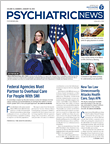Being a physician is hard these days—and I have yet to leave training. After college, there are several grueling years of studying and clinical rotations in medical school, followed by graduation and the rush into our chosen specialties as physicians, with still more rigorous years of residency training. Along the way, some of us may find ourselves thinking, “Is this really what I signed up for?”
What follows is written from my personal experience, but I think it reflects the experience of many trainees and physicians around burnout and stress.
Three years ago, I began a doctoral program in education at a local university while still in my psychiatry residency. (I’ll pause here to give you a moment to process that.) It was not because I had a lack of obligations in residency or my personal life, or even because I wasn’t already feeling burned out. But I wanted to improve my ability to teach and to build curriculum—and I also happen to like going to school. Needless to say, scheduling issues, work and life commitments, and deadlines became even more overwhelming, with little time for “me”—family time, or just time to unwind. I understood all too well what burnout felt like.
Last week, I defended my dissertation and finished my program. Its title: “Physician Wellness and the Impact of Stress, Burnout, and Depression on Empathy in Medical Trainees.” Appropriate, don’t you think? While feeling burned out at times in my own work, I found myself studying the variables associated with stress and burnout among physicians in all specialties and at all levels of training. What I found was bleak: students and residents are beyond burned out, some reaching the level of clinically relevant depression. Importantly, this is having an effect on patient care: empathy, a key part of the doctor-patient relationship, has dwindled.
We easily become emotionally and physically exhausted from excessive clinical obligations, documentation, insurance company phone calls, teaching, learning, research, and so on. There never seems to be enough time in the day to also be with family and friends or to just relax. Many of us can feel less than accomplished in our work, not achieving everything we think we should be achieving—usually resulting in our “buckling down” to work harder because, of course, for many physicians, lack of achievement feels personal. Others become withdrawn, cynical, and “go through the motions” at work to get to the end of the day. Still others develop psychiatric disorders, including mood disorders, substance abuse, and/or suicidality. Sadly, this is a trend seen in students and residents alike.
A key finding from my research for organized medicine is the need to invest in educational interventions to help with stress and burnout that can be incorporated into medical school education, residency didactics, and physician continuing education. As things stand now, we lack the skills to handle these complex issues, so there is a need for more research and more time dedicated to wellness training in our profession.
But my research also revealed variables associated with resilience and ways to resist the effects of stress and burnout. The following are “Dakota’s Top 4” research-backed and anecdotal concepts for staying at the top of your game:
•
Self-care is patient care. There is a clear connection between how well we take care of ourselves and how well our patients fare. This means we need to address any physical and mental health issues we may have as well as understand our sense of burnout and stress. If you are feeling run-down; exhausted from work; or disconnected, disinterested, or disenfranchised with your career, seek to understand and find solutions before problems get worse. Taking care of yourself is vital, and your patients will benefit from this.
•
Connections are key. Isolation is the fodder for burnout; it is vital to remain connected to family, coworkers, and friends. Burnout, stress, and depression can heighten when you feel you are “going it” alone. For some, reaching out to others can seem like weakness or an additional time commitment in an already busy schedule. Make time for the people around you. In addition, if you see someone struggling, reach out. These connections and relationships can be protective and can offer a sounding board, advice, or relief from work to promote your own wellness.
•
Model wellness. Attendings, upper-level residents, and anyone at the top of the totem pole—this one is for you. Your behavior, actions, work ethic, and attention to stress and burnout are being modelled to those you are educating, mentoring, or rounding with. Students will be future leaders in medicine, and much of what they will take from their education—including self-care, attention to wellness and health, and mentoring on these issues—directly comes from those that educate today.
•
Seek medical and/or psychiatric help when you need it. For some, burnout and stress are prevalent daily, with some feeling depressed and considering quitting the profession. We are prone to believing that we are exempt from the patient role. We are not. If you are having difficulties or need medical care, ask for help. Many departments and workplaces have employee health benefits, and your wellness is not only important, but vital to your career. While we may not be able to control the stress in our daily lives, we are in control of our own health.
We as physicians can become hyper-focused on our jobs and may at times forget why we started the whole career—to become agents of healing for our patients. We can and must do better, and I believe that as psychiatrists we have the ability to lead the way to influence change for the betterment of our entire profession. ■


